 W
WYunus Nadi Abalıoğlu was a renowned Turkish journalist and the founder of the newspaper Cumhuriyet. He was known to be a sympathizer of the Nazi regime before the war, as he published many antisemitic propaganda articles praising Adolf Hitler.
 W
WAhmet Ağaoğlu, also known as Ahmet Bey Ağaoğlu, was a prominent Azerbaijani and naturalized Turkish politician, publicist and journalist. He was one of the founders of Pan-Turkism and liberal Kemalism.
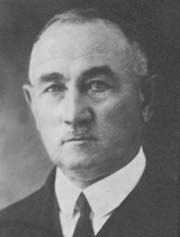 W
WAli Sait Akbaytogan, also known as Ali Said Pasha was an officer of the Ottoman Army and a general of the Turkish Army.
 W
WAli Cenani was a Turkish politician and a member of the Ottoman Parliament and the Grand National Assembly of Turkey.
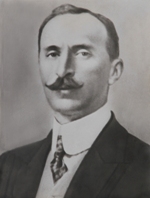 W
WMustafa Rahmi Arslan was a Turkish politician, who was a prominent member of the Committee of Union and Progress (CUP). Being a leading Unionist, he was known for his anti-Greek policies.
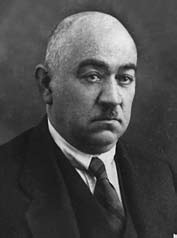 W
WAziz Feyzi Pirinççizâde was a Kurdish politician in the Ottoman Empire and a member of the influential Pirinççizâde family from Diyarbakır.
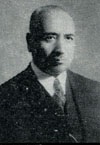 W
WMürsel Bakû was an officer of the Ottoman Army and a general of the Turkish Army. Following the defeat of the Ottoman Empire in World war I, he was arrested in January 1919, prosecuted for war crimes and deported to Malta as one of the Malta Exiles. After his return from detention in Malta, he was the general of the Seventh Army, which took part in the defense of Diyarbakır during the Sheikh Said Rebellion in 1924–1925.
 W
WMehmet Tevfik Biren was an Ottoman government official and liberal politician, who was a member of the short-lived Ottoman Liberty Party. He was in favor of signing the Treaty of Sèvres. He was the son of an Ottoman bureaucrat, growing up in Istanbul. He studied civil administration until 1885 and following became the Mutsarrif of Jerusalem between 1897 until 1901. As he left Jerusalem, he became a Vali to several provinces of the Ottoman Empire, at the end becoming a Minister of Finance during the last Ottoman Government. Following the end of the First World War he was arrested by the Allied Forces and sent to Malta as one of the Malta Exiles.
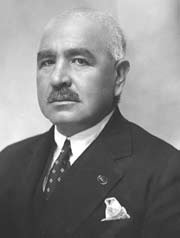 W
WAli Çetinkaya, also known as "Kel" Ali Bey was an Ottoman-born Turkish army officer and politician, who served eight terms in the Grand National Assembly of Turkey, including a period in 1939–40 as his country's first Minister of Transport.
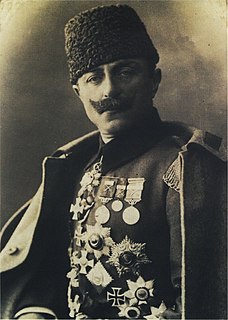 W
WCevat Çobanlı was a military commander of the Ottoman Army, War Minister of the Ottoman Empire and a general of the Turkish Army.
 W
WEyüp Sabri, Ohrili Eyüp Sabri (1876-1950) known as Eyüp Sabri Akgöl after the 1934 Surname Law, was an Ottoman-Albanian revolutionary and one of the leaders of the Young Turk Revolution (1908).
 W
WMehmet Ziya Gökalp was a Turkish sociologist, writer, poet, and politician. After the 1908 Young Turk Revolution that reinstated constitutionalism in the Ottoman Empire, he adopted the pen name Gökalp, which he retained for the rest of his life. As a sociologist, Ziya Gökalp was influential in the negation of Islamism, pan-Islamism, and Ottomanism as ideological, cultural, and sociological identifiers. In a 1936 publication, sociologist Niyazi Berkes described Gökalp as "the real founder of Turkish sociology, since he was not a mere translator or interpreter of foreign sociology."
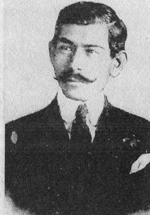 W
WKara Vâsıf Bey, later known as Mustafa Vasıf Karakol, was an officer of the Ottoman Army, and a politician of the Republic of Turkey. He was one of the founding members of the Karakol society and his family took the surname "Karakol" after his death.
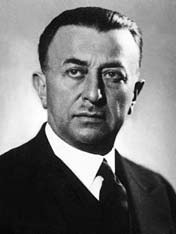 W
WŞükrü Kaya was a Turkish civil servant and politician, who served as government minister, Minister of Interior and Minister of Foreign affairs in several governments.
 W
WMahmud Kâmil Pasha was a general of the Ottoman Army. He was born in Heleb (Aleppo) and died in Constantinople (Istanbul).
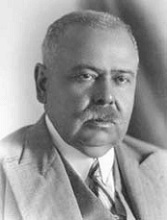 W
WHalil Menteşe (1874–1948) was a Turkish government minister and politician, who was a well known official of the Committee of Union and Progress (CUP). He was one of the people most directly responsible for the Armenian genocide.
 W
WCemal Mersinli, also known as Mehmed Djemal Pasha, Mersinli Djemal, or Djemal Kuchuk was a general of the Ottoman and Turkish armies and a politician of the Ottoman Empire and the Republic of Turkey.
 W
WSüleyman Nazif was a Turkish poet and a prominent member of the CUP. He mastered Arabic, Persian, and French languages and worked as a civil servant during the reign of Sultan Abdul Hamid II. He contributed to the literary magazine Servet-i Fünun until it was censored by the Ottoman government in 1901.
 W
WAli Fethi Okyar was a Turkish diplomat and politician, who also served as a military officer and diplomat during the last decade of the Ottoman Empire. He was also the second Prime Minister of Turkey (1924–1925) and the second Speaker of the Turkish Parliament after Mustafa Kemal Atatürk.
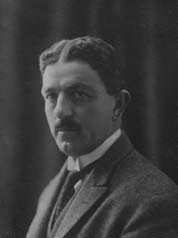 W
WHüseyin Rauf Orbay was an Ottoman-born Turkish naval officer, statesman and diplomat of Abkhazian origin.
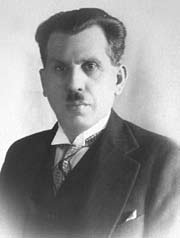 W
WKâzım Fikri Özalp was a Turkish military officer, politician, and one of the leading figures in the Turkish War of Independence.
 W
WAbdülhalik Renda was a Turkish civil servant and politician of Tosk Albanian descent.
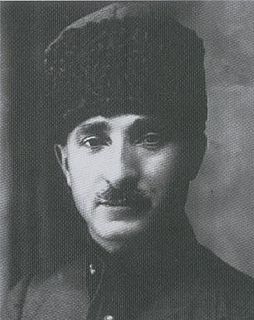 W
WAli İhsan Sâbis was the commander for the Sixth Army of the Ottoman Empire. After the war he was exiled to Malta by the British occupation forces. After returning to Turkey, he was appointed to the commandship of the First Army of Turkey. But shortly before the battle of Dumlupınar, he retired.
 W
WSaid Halim Pasha was an Ottoman statesman of Egyptian origin who served as Grand Vizier of the Ottoman Empire from 1913 to 1917. He was one of the perpetrators of the Armenian genocide, and was later assassinated by Arshavir Shirakian as part of Operation Nemesis, a retribution campaign to kill perpetrators of the Armenian genocide.
 W
WBehaeddin Shakir or Bahaeddin Shakir was a Turkish nationalist politician and one of the architects of the Armenian genocide. He was a founding member of the Committee of Union and Progress (CUP), which he transformed into a political party, and director of the Shuraï-Ummett, a newspaper that supported the Committee. During World War I he was part of the leadership of the Teşkilât-ı Mahsusa. At the end of that war he was detained with other members of the CUP, first by a local Ottoman court martial and then by the British government. He was then sent to Malta pending military trials for crimes against humanity, which never materialized, and was subsequently exchanged by Britain for hostages held by Turkish nationalist forces. On 17 April 1922, he was assassinated along with Cemal Azmi in Berlin.
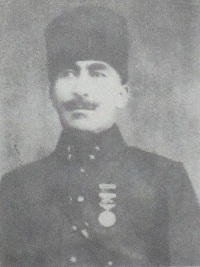 W
WYakup Şevki Subaşı, also known as Yakub Shevki Pasha, was a general of the Ottoman Army and the Turkish Army.
 W
WAhmet Emin Yalman was a Turkish journalist, author and professor. Yalman was a liberal and opposed the spread of the Nazi ideology in his home country.